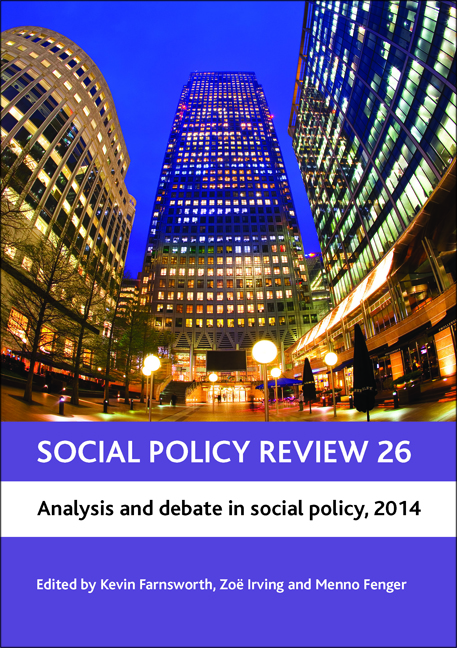Eight - Creating a legacy of long-term indebtedness: the toxic impact of payday loans in Wolverhampton
Published online by Cambridge University Press: 07 March 2022
Summary
Introduction and context
At a time when UK poverty is increasing as both benefits and incomes fail to keep pace with inflation, payday loans (PDLs) are an expanding market in terms of the value and number of loans. Payday loan companies offer short-term unsecured loans repayable on the borrower’s next payday, with annual interest rates often in excess of 3,000%. The increasing number of adverts on television (Ofcom, 2013) and their heightened presence on high streets in lower-income areas provides an initial, if somewhat unscientific, barometer of their target audience.
As the popularity of PDLs increases, the impact of this expensive debt is falling disproportionately on the poorest neighbourhoods. Recently, there has been increasing alarm from MPs, the Church of England and voluntary sector organisations regarding the impact of PDLs on neighbourhoods experiencing the brunt of recession and unemployment. Against this background, there have been calls for policy interventions and alternative financial services to limit their impact.
While proposals to use planning regulations to limit the presence of PDL companies on high streets (Smith, 2013), caps on the interest rates and a review of the use of Continuous Payment Authority will have some impact (Personal Finance Research Centre, 2013), this chapter argues that proposed interventions focus too heavily on limiting the supply of PDLs. While the supply and impact of PDLs in poorer neighbourhoods is problematic, there is a need for greater focus on factors fuelling demand for PDLs. Significantly, demand factors of relative poverty and real-term decline in living standards for many people have fuelled the increase in numbers of PDLs and value of the market.
In addition to existing evidence, this chapter is informed by dialogue with the local authority and debt advice agencies in Wolverhampton regarding their evidence of the PDL market in the city. Wolverhampton, a city in the West Midlands, has suffered from a decline in its traditional manufacturing and industrial economy, with there being above-average unemployment, low skills and low-paid work.
Evidence will be presented of PDLs being most popular in the poorest areas of cities such as Wolverhampton, coupled with evidence that PDLs are being used for everyday expenses rather than one-off, unforeseen expenses.
- Type
- Chapter
- Information
- Social Policy Review 26Analysis and debate in social policy, 2014, pp. 137 - 154Publisher: Bristol University PressPrint publication year: 2014

